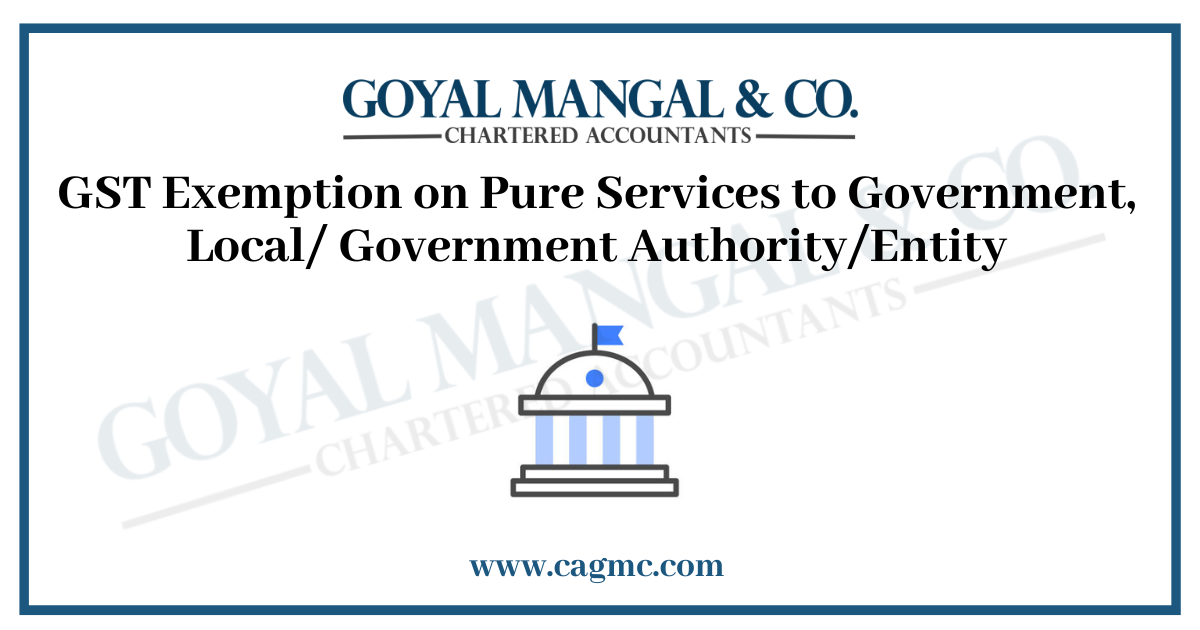
Understanding the taxation of goods and services include knowing that the goods or service is free to register with GST. Knowing this, applicants can find clarity on a few other things. The GST release threshold for businesses depends on their combined annual revenue. Previously, businesses with an annual turnover of Rs.20 lakhs did not need to register for GST. The price was Rs.10 lakhs in the northeast or hilly provinces like Meghalaya, Sikkim, Mizoram, Arunachal Pradesh, Nagaland, Himachal Pradesh, Manipur, Assam, Tripura, Uttarakhand, Jammu & Kashmir.
|
Table of content |
Public Authority: Definition and Meaning
According to Section 2(h) of Right to Information Act, 2005, “public authority” is defined as any institution of self-government established or constituted in accordance with the following:
- The constitution;
- Any other law passed by Parliament;
- Any other law passed by a State Legislature; or
- Any notification or order issued by the relevant Government.
This definition includes any-
- A body owned, controlled, or significantly financed;
- A non-governmental organisation that is significantly financed, either directly or indirectly, by money given by the relevant Government.
Pure Services under GST
Since ‘Pure Service’ is not defined under concept of GST, the same can be translated with common words. Provisions that may be regarded as services under Schedule II of the CGST Act, 2017 or which are not included under the definition of assets shall be classified as pure services. However, contractual services or other combination items involving the provision of any goods are not included in the release notice.
In other words, if a person only provides service to any person without being involved in the provision of goods and the provision of services, the same will be called pure service delivery. Continuing with the work instructions submitted by the applicant regarding the services provided to the organizations, it became apparent that the services provided were for operational purposes only or security services. As there was no involvement in the supply of goods to these services, the services would be referred to as pure services’.
Exemption on Pure Services to Government
The exercise duty on Service applies to many industries but is usually initiated when the business provides pure service to a public entity. The term ‘pure service’ refers to a function assigned to a municipality or another public body under Section 243W of the Constitution. For example, a video production company might be involved in producing videos and photos of various government agencies. But its functions are not directly related to the functions assigned to local bodies such as municipalities and panchayats. For these types of services, the company will be subject to a tax rate of 18%.
Provide pure government services provided by CGST Act, 2017 in goods and services. These tax breaks are available on many goods and services, including staff provision, security and infrastructure. However, there is a difference. For example, a company that offers a service contract may provide construction or maintenance services to the National Health Plan (NHP). These services will fall under Article 243W of Constitution, so we can be exempt from paying taxes.
Functions of 243 G and 243 W on the constitution
The Panchayat or Municipality has a delegated authority to provide drinking water. Under the provisions of Section 243G and 233W of the Constitution, Government may not participate in the provision of these services. However, if the panchayat or municipality deems it necessary, it may be able to perform these functions. These authorities may exercise their powers under the law, and may decide to delegate certain powers to municipalities and other public bodies. In addition to providing public services, these bodies may provide goods and services to local authorities, Public Enterprises and other authorities. These businesses can be panchayats, or municipalities. The services they provide are directly related to the mandate given to them under Article 243G and 123W of the Constitution. Thus, the activities of these organizations are exempt from taxation.
Advance ruling on Pure Services
According to the definition of ‘pure services’ under the GST Act, 2017 these services are provided by ‘Government Officials’ to a local council or municipality that may be exempt from tax exemptions. The terms ‘Government Authority’ and ‘pure service’ are not the same. ‘Government Authority’ is a board or authority established by the State with control over, equal to, or participation in excess of ninety percent. Pure Service is an offering that does not involve the provision of goods or services. Such an offer may be a one-time agreement for the provision of a specific or ongoing service. For example, a service provider may provide a street cleaning service, while a municipal or district level provides security guards However, a state-owned enterprise can provide a Pure Service only if it performs a constitutional function.
- Case laws: In re ‘Tamil Nadu Water Investment Company Limited’ 2019 (2) TMI 187- AUTHORITY FOR ADVANCE RULING, TAMILNADU
- Held: To manage and direct construction including the external inspection of the proposed site, building, commission 45 MLD capacity Tertiary Treatment Reverse Osmosis Plan in Kodungaiyur and Koyampedu as well as consultation services to prepare a detailed project report to provide intelligent water and sanitation services in T. Nagar under Smart City Mission ‘are clean and pure services under Sl. Notice No. 3 12/2017 – CT (Average), dated 28.06.2017.
Conclusion
AAR has concluded that the applicant is eligible to claim exemption benefits under notice No.12 / 2017-Central Tax (Rate) dated 28.06.2017 for pure services (personnel, security service) provided by the Central Government, Regional Government, Local Authorities, Authorities Government, Public Entities as described above provided that the services provided to the aforementioned enterprises are provided for any function related to any function assigned to Panchayat under Article 243G of the Indian Constitution or in respect of any function assigned to the Municipality under Section 243W of the Indian Constitution.


